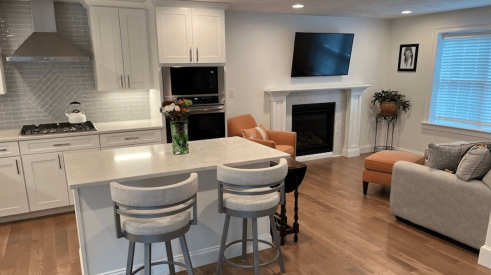Cash is king, particularly now that the coronavirus has created widespread uncertainty about supply chains, buyer confidence, and when the world will finally escape from this pandemic.
“Cash flow management and preservation is your No. 1 financial priority right now,” Katrina McLauchlan, CFO of Alair Homes, advised during a recent teleconference with owner/operators of Alair Homes, a Nanaimo, British Columbia custom home franchiser with 85 operating units in the U.S. and Canada. “We just have to get over this shock," she says, "and if we can get over this shock, we're all going to be much stronger because of it.”
Even during good times, builders grapple with factors beyond their control, such as supply chain glitches and processing delays for bank financing. Those situations are likely to become more common during the pandemic; builders in the Midwest already are reporting that manufacturers such as Pella have extended lead times for window orders by four weeks, and some plumbing showrooms have stopped delivering to jobsites and are only offering pick-up service.
Besides devising contingency plans for those interruptions, builders should look at multiple scenarios for their cash flow, such as what will their balance sheet looks like at 75% of current output, at 50%, and so on. Working though those situations can be the beginning of not only figuring what costs to cut to keep the doors open, but also determining if builders can afford to sell a house at the reduced profit margin, and whether taking that hit can keep a skittish buyer on board.
“It’s very important that builders project for multiple scenarios in the future and make sure they understand where they would stand and then make plans for each of those situations.” Katrina McLauchlan, CFO, Alair Homes
Paying the Bills
A source of pride for some builders is a reputation for paying trades every two weeks and suppliers within 30 days. That’s a great practice for being the builder-of-choice among subcontractors but that habit can turn into a self-inflicted wound on the builder’s cash position when the market slows.
Noelle Tarabulski, president and founder of Builder Consulting Group, in Lakewood, Colo., suggests being proactive. Approach suppliers about extending payment terms to 60 or 90 days. Labor-intensive trades with large payroll, such as framers, painters, concrete, and drywall contractors, probably can’t afford to be so lenient. But suppliers may be in a better cash position, and if the builder has a good relationship with them, they may be more flexible, she says.
Alair’s corporate office handles back office duties for franchise builders, including processing payments on the 1st and 15th of every month. McLauchlan cautioned her franchise builders not to cut an extra check off the back of their truck or anywhere else outside that regular payables schedule, as doing so would degrade their cash flow forecasting report.
“This report is your lifeline. It forecasts your cash position 30 to 40 days out right now, which is exactly the time period we need, most likely, to get through this initial shock,” McLauchlan says.
More Cash Preservation Tips
McLauchlan recommends that builders:
• Make plans for finances. While the current cost of money is favorable for borrowers, builders should huddle with their accountants or bank managers now—rather than when their account balance declines—and prepare applications for a bank line of credit, a bridge loan, or a small-business loan.
• Don't finance client projects. Stop work on the house if client payments aren't up to date and have that buyer and their bank commit to a plan to ensure you will have more cash in the bank before restarting work. “Don’t take the client’s word for it,” McLauchlan says. “If in doubt, get a lawyer involved and have the attorney manage funds at the client’s expense.”
• Perform daily budget reviews and confirm that selections are up to date and client-approved so the project can progress to the next milestone that triggers a scheduled payment by the client. If the project isn't approaching a payment milestone and you’re under-billed on the project, you must bill the client and communicate with them daily until that money is in the bank. Owner/operators should take charge of this task rather than delegate it to a project manager.
Advertisement
Related Stories
Housing Markets
4 Cities Where Housing Inventory Now Exceeds Pre-Pandemic Levels
San Antonio leads with the greatest surge in the number of homes available post-pandemic
Remodeling
Aging in Place: My Aunt Nancy’s New ADU
An apartment addition for an accessory dwelling unit to allow a family member to age in place presents several challenges and lessons learned for both the homeowners and contractor alike
Housing Markets
Average Homebuyer Income Increased Considerably in 'Pandemic Boomtowns'
Remote workers moving to Boise, for example, have raised the average annual income of homebuyers by 24%, to $98,000








